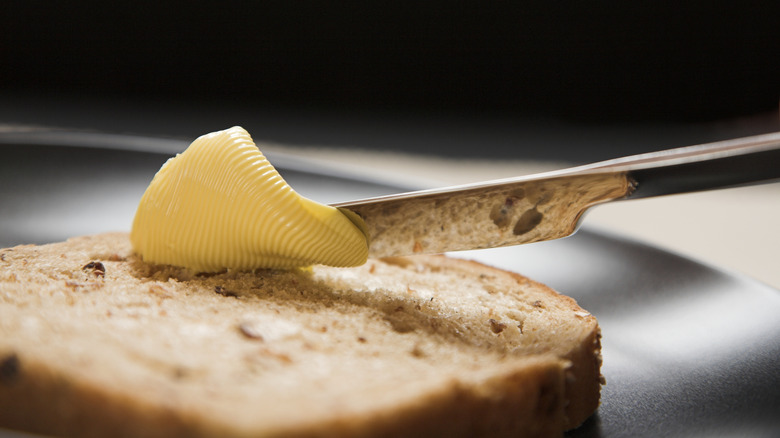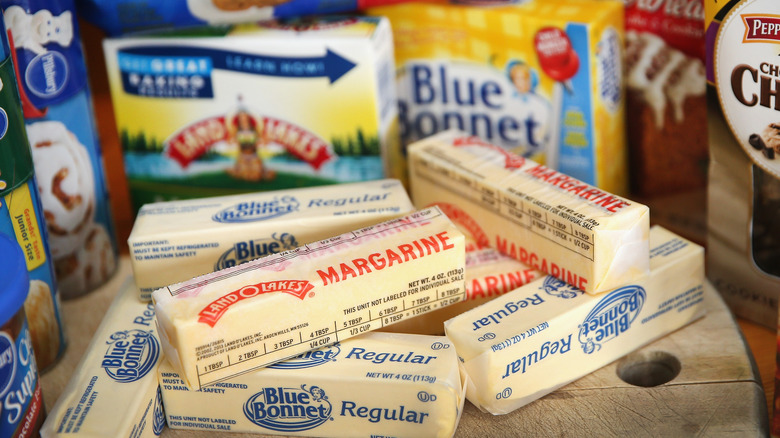Wait, Can You Really Not Serve Margarine In Delaware?
The United States has some really important laws in the book to keep people and the foods they consume safe. However, it also has some food laws that might leave you scratching your head. For example, if you are in Little Rock, Arkansas and you are at a drive-thru trying to order your favorite bodega-style chopped cheese sandwich, do not honk your horn — it's technically illegal. And up north in Delaware, you'll discover that restaurants there are not allowed to serve margarine.
The law, per the Delaware General Assembly, explicitly states the following: "No owner or proprietor of any public eating place shall serve yellow oleomargarine unless a notice that oleomargarine is served, is displayed prominently on the menu or on a placard in clear view of all customers." And if you do, without letting your diners know that their butter is not real, you could be placed in jail. So why do Delaware food establishments have to post what is tantamount to a scarlet "M" if they want to serve you this yellow-colored butter substitute to smear on your buttermilk biscuits and toast?
First regulated food
Historically speaking, margarine has been butter's step-sister for quite some time. This ingredient was first invented in 1869 by Hippolyte Mèges-Mouries for those French workers who could not afford dairy-rich butter, and margarine was eaten by Napoleon III's armies during the Franco-Prussian war. That first iteration of this spread was made with beef tallow and churned milk. Other inventors later played with the first iteration of this product, but it wasn't until 1902 that vegetable oil became its main ingredient.
Still, this product was a bridge too far for many governments with it being classified with vices like alcohol and narcotics. In the United States, it was the first food the government regulated, taxing it heavily for its yellow color. The chaos spread quickly. Margarine producers were in direct competition with dairy farms that produced and sold butter and they were quick to get Congress to pass the 1886 Margarine Act which placed lots of tariffs and restrictions on margarine's production. Many spread disinformation about the product, even linking it to mental illness.
It wasn't until 1960 that the unfair and discriminatory taxes completely disappeared. Depending on how you look at it though, Delaware either still holds a grudge against this product and doesn't like it served with those morning pancakes, or the state likes to place a spotlight on eateries who are brave enough to serve it.

